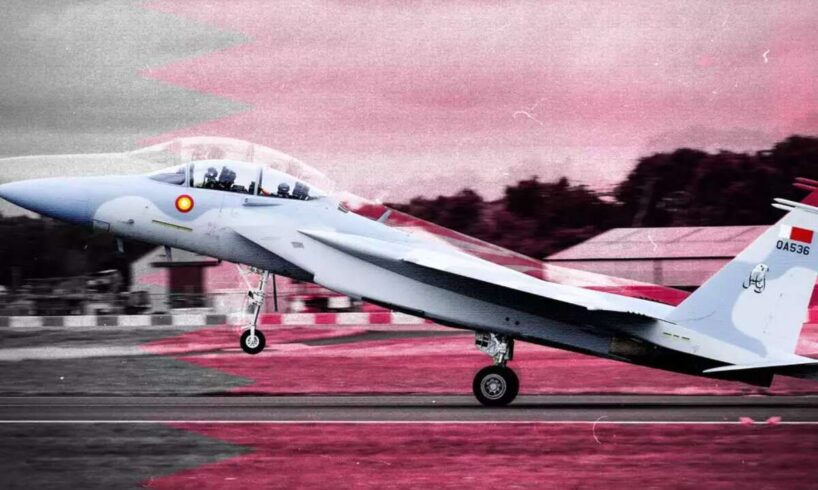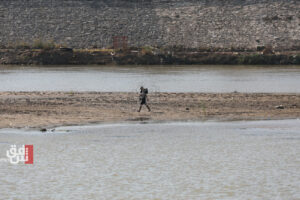
In April this year, a year and a half after Hamas’ October 7 massacre, a multinational air drill took place in Middle Eastern skies, an exercise whose execution required a significant degree of cynicism. Alongside the air forces of Israel, France, India, the US and other countries, the Qatari Air Force also participated. Qatar has been a patron of Hamas, funding the terrorist organization for many years; one of the main financiers and supporters of global Islamist terrorism, which, according to both foreign and local publications, has sponsored numerous Sunni and Shiite terrorist groups, including the Islamic State, al-Qaeda, Hezbollah, and Iran’s Islamic Revolutionary Guard Corps.
Although Israel has not legally defined Qatar as an enemy state, its deep ties to Hamas make any security cooperation with it, however limited, questionable. Before October 7 and certainly afterward, such cooperation raised eyebrows. To this day, Qatar provides shelter to Hamas, which carried out the October 7 massacre, and hosts its senior leaders. Yet Israel has still not officially classified it as an enemy state.
Now, a wide ranging documentation and monitoring project by MEMRI reveals that the April air drill, which also included Italy, Poland, Slovenia, Spain and the United Arab Emirates, was only the tip of the iceberg in the West’s cooperation with this terror-supporting emirate. That cooperation has transformed the Qatari Air Force from a small, limited force of just nine Mirage fighters a decade ago into one of the most advanced air forces in the Middle East. Paradoxically, Israel was also part of this buildup. MEMRI found that Israeli defense firms Elbit Systems and Rafael Advanced Defense Systems had in the past sold advanced technologies to the Qatari Air Force, that senior Israel Aerospace Industries (IAI) executives visited Doha at least 20 times, and that IAI even hosted a Qatari delegation in its offices.
Buying knowledge
Qatar, a supporter of Hamas that has maintained good relations with Iran for years and has been identified as its ally, is building its air force through purchases from three main Western sources: Boeing in the US, Dassault in France, and Eurofighter in Europe. This gives Qatar access to all the most advanced Western aerospace technologies, which could easily end up in the hands of Iran and its proxies, in Turkey, which is hostile to Israel, and even in countries like China that assist Israel’s enemies.
Moreover, MEMRI’s monitoring project shows that Qatar is training pilots from “neighboring and friendly” countries such as Jordan, Tunisia, Somalia and Rwanda. The Qatari Air Force has adopted NATO training models, including the combat tactics of Italy, France, the UK and the US, tactics that could easily be passed on to states hostile to NATO.
In fact, MEMRI states that such transfers have already begun: in September 2024, Qatar and Turkey established a joint squadron based at Qatar’s Dukhan Air Base. According to international media reports, in this squadron, Qatari pilots serve as “enemy” aircraft for Turkish pilots, whose fleet is relatively outdated, to familiarize them with the French Rafale jet operated by Qatar, the same model now in service with Greece, Turkey’s regional rival.
As noted, Qatar’s fighter jets come from three companies: the F-15QA “Ababil” from Boeing in the US, the Rafale from Dassault in France, and the Eurofighter Typhoon, jointly developed by the UK, Germany, Italy, Spain and France, whose air forces, along with Qatar and Israel, participated in the April joint drill.
According to MEMRI, the F-15QA is the most advanced “silent” fighter in the world. While not a stealth aircraft, it has high stealth capabilities. Elbit’s website states that the F-15 is equipped with components made by the company, including fuel tanks, weapons stations, horizontal stabilizers and adapters. According to global media reports, the F-15QA is also fitted with an electronic warfare system produced by Elbit and Rafael.
Currently, Qatar is in the process of acquiring MQ-9B “SkyGuardian” drones from General Atomics in the US, considered the most advanced UAV in the world. Designed primarily for intelligence missions, the SkyGuardian can also carry precision-guided munitions for target destruction, fly for over 40 consecutive hours, and is equipped with advanced electronic warfare systems. General Atomics says the SkyGuardian can even help detect and destroy enemy submarines from the air.
SkyGuardian, the world’s most advanced UAV. Coming soon to Qatar’s military? Photo: General Atomics
As in previous MEMRI publications, the monitoring project reiterates: “Qatar is the world’s largest financier of global Islamist terrorism, with its close ally Iran in second place. Israel and the US could have attacked Iran’s nuclear facilities knowing that Iran’s outdated air force posed no real threat to attacking aircraft, it was based mainly on aging F-14 jets from the Cold War era, which were destroyed on the runway. However, a similar attack against Iran’s close ally, Qatar, would pose a much greater challenge to any attacking force, given the Qatari Air Force’s level, now equipped with the best American, European and Israeli aerial technology, and with firsthand familiarity with NATO combat tactics.”
Despite Qatar’s deep ideological commitment to terrorism and extremist Islamist movements worldwide, its constant incitement to terror and antisemitism on the Qatari government-owned Al Jazeera channel, and its incitement against the US, Washington continues to promote extensive defense ties with Qatar. This includes Qatari purchases from the US valued at about $26 billion. According to the US State Department, these acquisitions include F-15QAs and AH-64E Apache helicopters, models far more advanced than those in Israeli Air Force service.
Nevertheless, the West continues to build up Qatar’s air force and even includes it in joint exercises. A month after the April drill involving both Qatar and Israel, another joint exercise was held in Turkey, in which Qatar showcased its helicopter squadrons as well as its capabilities in airborne resupply and deploying commando and paratrooper forces. Participants included the US, Germany, Azerbaijan, Italy, Poland, Romania, Slovenia and Saudi Arabia. Qatar also conducts regular joint air training with Pakistan.
The Sunni axis danger
Maj. Gen. (res.) Uzi Dayan, former deputy IDF chief of staff and former head of Israel’s National Security Council, says MEMRI’s findings are highly concerning from a strategic standpoint. “Israel is currently successfully working to dismantle the Shiite axis. The leakage of offensive capabilities and technologies from Qatar to others could hinder us from completing that task and, in a different constellation, could even help create an alternative Sunni axis that Qatar would support, one that might include Syria, former Syrian territories and Egypt. What is even more troubling are the relations between Qatar and Turkey, and their ongoing cooperation. Turkey threatens us verbally, and potentially from the north via the Syrian border.”
Maj. Gen. (res.) Uzi Dayan. Photo: Yehoshua Yosef
“The threat Qatar poses is threefold: First, the capabilities they are acquiring now, particularly the F-35 and UAVs, which are clearly offensive weapons. Second, the technological leakage from the weapons they have obtained, including systems with blue-and-white (Israeli) technological and techno-tactical achievements. Third, the operational-tactical level: Qatar’s ability to gain experience now in joint drills, and especially in serving as enemy aircraft, is of immense value to them, and in the long term could also harm us.”
What to do?
“With the Americans, we must continue to oppose supplying such weapons systems to Qatar. That’s what we have done so far, not always successfully. We must remind the Americans that it’s in their interest to heed our objections, since we serve as both a battlefield laboratory and an excellent intelligence source for them. The American defense industry profits greatly from these things, but for them it is right and worthwhile to maintain our qualitative edge, to which they say they are committed.”
“For ourselves, the Defense Ministry must be far stricter with Israeli companies regarding arms exports, supporting systems and weaponry that could leak to hostile actors via Qatar. We should focus on four areas and tighten oversight: precision weapons; systems related to advanced attack aircraft; UAVs and electronic systems, especially radars and active protection systems like Trophy; and systems mainly used for early warning, intelligence gathering and missile interception.”
Much of MEMRI’s material comes from open sources that no one had previously compiled. For example, according to US Defense Security Cooperation Agency documents from 2016, the F-15QAs purchased by Qatar from Boeing included Elbit components. Elbit recently won the Israel Defense Prize for a classified technological development that assisted in the assassination of Hezbollah Secretary-General Hassan Nasrallah. Just two months ago, Elbit clarified, through Israeli journalist Ben Caspit who also addressed the matter, that its international operations “are subject to the directives and restrictions of the Israeli Defense Ministry, and accordingly, the company operates under these guidelines.”
Israel, via defense companies that received official approval, is merely a subcontractor in this story. In reality, the US is the prime contractor building Qatar’s air force. In 2019, Washington approved a defense deal for Qatar to buy 24 additional AH-64E Apache attack helicopters, adding to the 24 it already had. This helicopter is considered the most advanced attack helicopter in the world, with close air support and ground target-hunting capabilities.
When approving the deal, the US explained: “Qatar hosts US Central Command (CENTCOM) forces and serves as a forward deployment location in the region. The acquisition of these helicopters will enable integration with US forces in joint exercises, contributing to regional security and cooperation.”
To complement its modern attack helicopters, MEMRI reveals, Qatar is also set to receive an arsenal of 2,500 Hellfire missiles for its Apache fleet. For comparison, in early 2025 the US approved the sale of 3,000 such missiles to Israel, after Israel had already been engaged for a year and a half in an intense war in Gaza and against Iran, Hezbollah, Syria and the Houthis in Yemen.
The next generation
The monitoring report also examines the possibility of supplying F-35s to Qatar. It quotes Lockheed Martin CEO Jim Taiclet, who said in May 2024 at the Bernstein Strategic Decisions Conference: “If we can work with Saudi Arabia, Qatar and the United Arab Emirates on a serious upgrade of their air capabilities… that will be a significant opportunity for the company.”
The sixth-generation F-35, which Taiclet dubbed “the Ferrari of fighter jets,” is expected to feature enhanced stealth, significant design changes, and technology upgrades enabling autonomous operation without a pilot. MEMRI experts warn that the development of a sixth-generation F-35, whose current version already includes Israeli technological components, could signal the start of a reversal in US policy on selling the jet to countries whose requests were previously denied, including Qatar, the UAE and Saudi Arabia.
F-35 fighter jets. Photo: IDF Spokesperson’s Unit
Unlike Turkey, whose request to purchase F-35s was rejected after it bought Russian air defense systems, the US refusal so far to sell the aircraft to Qatar, the UAE and Saudi Arabia has been based on long-standing American policy and on Washington’s legal commitment since 2008 to preserve Israel’s qualitative military edge over other regional states.
Israel has in the past opposed the sale of F-35s or any advanced weaponry to any Middle Eastern country, including Arab states with peace agreements with Israel, but its opposition has not always been accepted. Israel also opposed the deal under which Qatar purchased 72 F-15s, yet the sale went ahead. Moreover, those F-15s included Israeli technological developments, and this was confirmed in a US Defense Department statement. In a document from the Obama administration period approving the sale, the Pentagon wrote: “The benefits of executing this sale for US foreign policy and national security outweigh the potential damage from exposing these sensitive technologies to unauthorized parties.”
It should be stressed again: Qatar is an antisemitic state that promotes Islamist terrorism, whose Al Jazeera channel constantly incites against Israel’s very existence. It is allied with Iran, Pakistan and Turkey, and has managed, and continues, to purchase from the US advanced fighter jets with cutting-edge American technology, including Israeli-developed systems.





